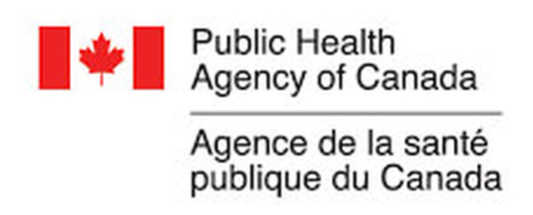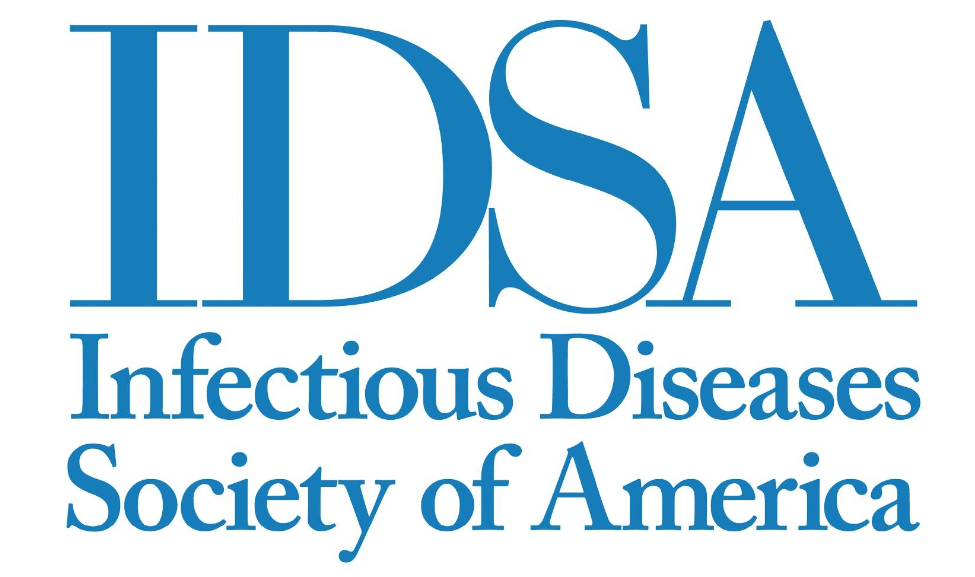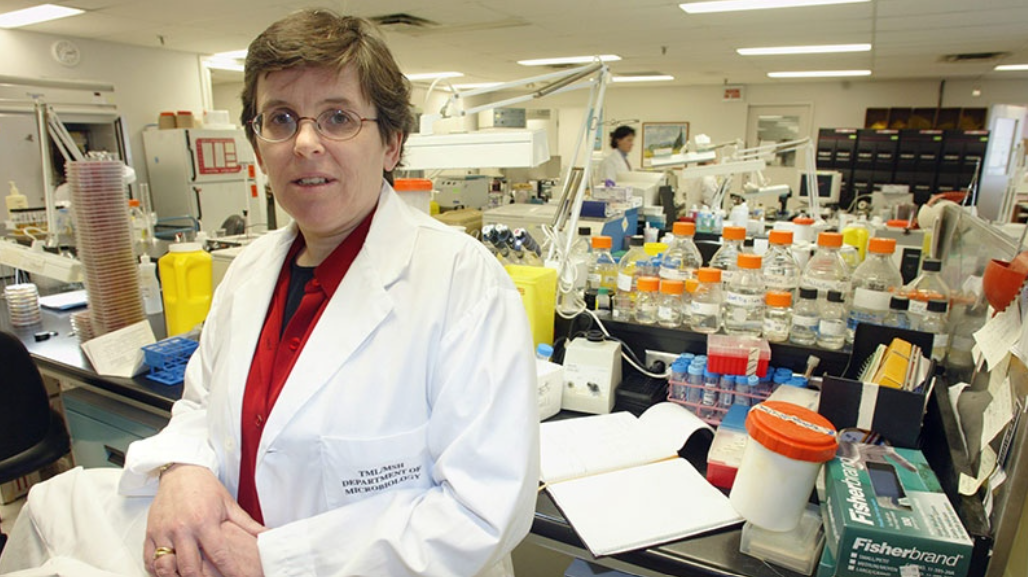2024 INDUCTEE Allison McGeer, MD Women in Medicine, Infectious Disease, Allergy & Immunity, Health Policy
November 14, 1952
(Arvida (Jonquiere), Quebec)
MD, University of Toronto (1982)
2025: Member of the Order of Canada
2022: DSc(Hons), McMaster University
See All AwardsAwards & Honours:
2025: Member of the Order of Canada
2022: DSc(Hons), McMaster University
2022: Medal of Honour, Health Research Foundation
2021: John G Fitzgerald Award (Outstanding Microbiologist), Canadian Association for Clinical Microbiology and Infectious Diseases
2021: Norman Rosenblum Award for Excellence in Mentorship in the MD/PhD Program, University of Toronto
2020: Lila Albin Award for the Best Indoor Environmental Quality Paper of 2019, American Industrial Hygiene Association
2016: Lifetime Achievement Award, Canadian Association for Medical Microbiology and Infectious Diseases
2015: Canadian Medical Association May Cohen Award for Women Mentors
2013: Distinguished Service Award, Department of Laboratory Medicine and Pathobiology, University of Toronto
2003: Long-Term Health Care Award, Canadian Society for Hospital Pharmacists
2002: Award of Distinction, Health Care Health and Safety Association of Ontario
2002: Karen McGibbon Award of Excellence, Mount Sinai Hospital
2002: Long-Term Health Care Award, Canadian Society for Hospital Pharmacists
2002: Nakano Citation; Best Scientific Paper. National Centre for Infectious Diseases
1999: Louis Weinstein Award for the best article, Clinical Infectious Diseases
1998: Family and Community Medicine Research Award, Best Research Paper
1996: Editorial Award, Best Department Article in Long Term Care (journal of the Ontario Nursing Home Association)
1990-1988: First prize, Mount Sinai Hospital Department of Medicine Research Competition, Clinical Research Division
1989-1990: Ontario Ministry of Health Research Fellowship

Improved research-led policy to combat bacterial and viral infections

A guiding force in Canadian and international public health and infectious disease
One of Canada's most trusted policy advisors in the field of infectious disease, Allison McGeer, MD has received international recognition for her leadership during Canadian and global pandemic responses. Her expertise was integral to several large-scale efforts to combat emerging infections, including those during the 2003 SARS pandemic (while contracting the disease herself), the MERS outbreak in Saudi Arabia, the Ebola outbreak in West Africa and the COVID-19 pandemic. As the principal investigator of the Toronto Invasive Bacterial Diseases Network for nearly 30 years, Dr. McGeer has informed policy for preventing and managing diverse infections with her research. Specifically, her studies offer new insights into the epidemiology of bacterial and viral infections, the spread of antimicrobial resistance and the causes of bacterial sepsis. Dr. McGeer’s innovative research and global reputation as an expert in pandemic response led to central roles on provincial, national and international advisory committees and to numerous honours, including a Lifetime Achievement Award from the Association of Medical Microbiology and Infectious Disease Canada. Her contributions to our country’s public health and scientific landscape have redefined pandemic preparedness and response research.
Key Facts
An infectious disease physician, researcher and educator who became one of Canada's most trusted policy advisors in her field
Principal investigator of the Toronto Invasive Bacterial Diseases Network for nearly three decades
Led the response to the SARS outbreak in Toronto and was instrumental in successfully containing this epidemic
A key figure in Canada’s response to COVID-19, having served on multiple leadership groups and co-authored over 90 publications on the topic
Published more than 600 academic papers on the transmission, surveillance, diagnosis, prevention and treatment of infectious disease
Fun Fact: In addition to a life-long love of reading (often with three books on the go), Allison has always been active excelling at downhill ski-racing, hockey and squash in her youth, and now, cross-country skiing, hiking, canoeing, and birding with her husband.
Professional timeline
Impact on Lives Today
Dr. McGeer’s position at the forefront of Canada’s response to both SARS coronavirus pandemics (2003 and 2020 onward) and others illustrates her significant influence in the field of infectious disease. Her tireless efforts in studying disease control and prevention, antimicrobial resistance, immunizations and zoonotic diseases have informed top decision-makers. This work, which often involved putting herself personally and directly in harm’s way, has improved how we plan for and respond to outbreaks, with real benefits for patients, health-care workers and systems.

2026
-

Allison McGeer inducted into the Canadian Medical Hall of Fame
Vancouver, British Columbia
-

Appointed a member of the Advisory Group on Antimicrobial Resistance, Public Health Agency of Canada
Pioneers, Leaders, Scholars and Change Makers, Health Policy, Women in Medicine -

Appointed to the Infectious Disease Society of America COVID-19 Guideline Infection Prevention Sub-Group
Infectious Disease, Allergy & Immunity, Pioneers, Leaders, Scholars and Change Makers, Public Health, Health Promotion & Advocacy, Women in Medicine -

Served as an influential figure in Canada’s response to COVID-19
Diagnosis, Treatment and Prevention, Infectious Disease, Allergy & Immunity, Women in MedicineDr. McGeer was a member of the Ontario COVID-19 Science Table, the Canadian COVID-19 lmmunity Task Force and the expert advisory panel to the Chief Science Advisor of Canada.
-

Played key roles in the World Health Organization's responses to the MERS outbreak in Saudi Arabia and the Ebola outbreak in West Africa
Infectious Disease, Allergy & Immunity, Pioneers, Leaders, Scholars and Change Makers, Global Health, Women in Medicine -

Treated infected patients
Diagnosis, Treatment and Prevention, Infectious Disease, Allergy & ImmunityShe treated infected patients and coordinated the Toronto hospitals’ response to the SARS pandemic, while surviving the disease herself.
-

Dr. Allison McGeer pioneered the use of molecular microbiology techniques to diagnose Whipple's disease
Digestion -

Graduated medical school, University of Toronto
1982
Dr. McGeer’s contributions to policy have no doubt saved lives, fortified institutions and health-care systems against collapse and reinforced multiple levels of public health.
Additional Resources:
- Order of Canada appointments honour TeamUHN members for clinical and scientific contributions
- 2021 John G. Fitzgerald award recipient – Dr. Allison McGeer
- Health Research Foundation Announces Recipient of its Medal of Honour
- Dr. Allison McGeer answers common questions about the flu and the flu shot
- 2024 Induction Ceremony - Dr. McGeer's Podium Speech


